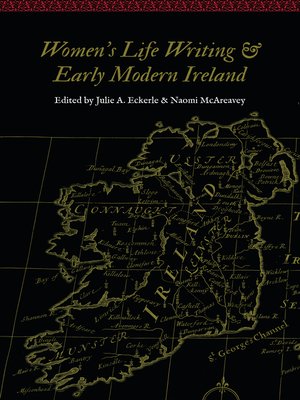Women's Life Writing and Early Modern Ireland
ebook ∣ Women and Gender in the Early Modern World
By Julie A. Eckerle

Sign up to save your library
With an OverDrive account, you can save your favorite libraries for at-a-glance information about availability. Find out more about OverDrive accounts.
Find this title in Libby, the library reading app by OverDrive.



Search for a digital library with this title
Title found at these libraries:
| Library Name | Distance |
|---|---|
| Loading... |
Women's Life Writing and Early Modern Ireland provides an original perspective on both new and familiar texts in this first critical collection to focus on seventeenth-century women's life writing in a specifically Irish context. By shifting the focus away from England—even though many of these writers would have identified themselves as English—and making Ireland and Irishness the focus of their essays, the contributors resituate women's narratives in a powerful and revealing landscape.
This volume addresses a range of genres, from letters to book marginalia, and a number of different women, from now-canonical life writers such as Mary Rich and Ann Fanshawe to far less familiar figures such as Eliza Blennerhassett and the correspondents and supplicants of William King, archbishop of Dublin. The writings of the Boyle sisters and the Duchess of Ormonde—women from the two most important families in seventeenth-century Ireland—also receive a thorough analysis. These innovative and nuanced scholarly considerations of the powerful influence of Ireland on these writers' construction of self, provide fresh, illuminating insights into both their writing and their broader cultural context.
This volume addresses a range of genres, from letters to book marginalia, and a number of different women, from now-canonical life writers such as Mary Rich and Ann Fanshawe to far less familiar figures such as Eliza Blennerhassett and the correspondents and supplicants of William King, archbishop of Dublin. The writings of the Boyle sisters and the Duchess of Ormonde—women from the two most important families in seventeenth-century Ireland—also receive a thorough analysis. These innovative and nuanced scholarly considerations of the powerful influence of Ireland on these writers' construction of self, provide fresh, illuminating insights into both their writing and their broader cultural context.







